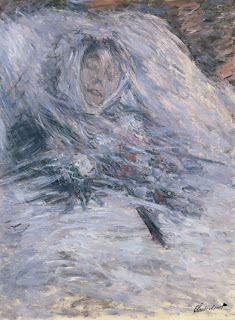 |
| Hans Bol (1534-1593) |
The ancient greek myth of Icarus is one of the most infuential, not only in art, but in the whole Western culture, because it represents not only the human dream of flying but also the dangers of a new condition that is beyond the biological human abilities and the consequent nessecity of a wise and prudent management of the new power. It also represents the consequenses of son's disobedience to father's authority and wise advice
_Icarus.JPG) |
| Joos de Momper (1564-1635) |
The two above paintings were inspired by Ovid's roman poemMetamorphoses : Daedalus and Icarus (verses 338-343):
Beneath their flight,
the fisherman while casting his long rod,
or the tired shepherd leaning on his crook,
or the rough plowman as he raised his eyes,
astonished might observe them on the wing,
and worship them as Gods.
 |
| Peter Bruegel the elder (1558) |
Bruegel's painting seems to be sarcastic to the romantic epic description of Ovid's verses and the above paintings. The Flight and Fall of Icarus seems to be not a cosmic event at all, but an unimportant and unnoticed event in medieval minds of simple men who are devoted to their works, giving no damn to what is happening around them.
From Bruegel's painting, the poet Wystan Hugh Auden (1907-1973) inspired his poem «Musee des Beaux Arts» (the Belgian museum where Bruegel's paining is in) noticing the human indifference, relating this painting with the
"Massacre of the Innocents" also painted by Bruegel, where the animals seem indifferent for the human suffer:
About suffering they were never wrong,
The Old Masters; how well, they understood.
Its human position; how it takes place
While someone else is eating or opening a window or just walking dully along;
How, when the aged are reverently, passionately waiting
for the miraculous birth, there always must be
children who did not specially want it to happen, skating
on a pond at the edge of the wood:
They never forgot
that even the dreadful martyrdom must run its course
Anyhow in a corner, some untidy spot
where the dogs go on with their doggy life and the torturer's horse
scratches its innocent behind on a tree.
In Breughel's Icarus, for instance:
how everything turns away quite leisurely from the disaster;
the ploughman may have heard the splash, the forsaken cry,
But for him it was not an important failure; the sun shone
As it had to on the white legs disappearing into the green water;
and the expensive delicate ship that must have seen something amazing,
a boy falling out of the sky,
had somewhere to get to and sailed calmly on.
 |
| Rubens Peter Paul Rubens (1636) |
 |
| 17th century |
 |
| Herbert James Draper (1898) |
 |
| William Rimmer ( 1869) |
 |
| Galileo Chini (1907) |
 |
| Henri Matisse (1944) |
 |
| Henri Matisse (1943) |
 |
| Marc Chagall (1975) |
 |
| Label of Swan Song, inspired from William Rimmer's above painting |
 |
| single cover art |
Bruce Dickinson modified the original Icarus tale to make it an allegory of teenage rebellion against adult authority, which caused the death of Icarus in this case.
The song does a creative violation of the original narration and a reversal of its moral in order to become an allegory for the teenager’s demand for independence from the parental bonds and authority, the last, feeling unbearable envy for such disobedience, sabotaged his son’s wings to send him to certain death.
We also notice that besides the reversal of the moral of the myth, there is also the presentation of the sun, not as a dangerous burning factor, (from the ancient perception of universe where the sun is only some thousands meters above us, completely false today, because the higher you fly, the colder you feel) but in fact as life supporter (first verse) and an imaginative object of desire (fly, touch the sun)
It worths mentioning another myth about Daedalus, where his envy for his very clever inventor nephew, named Perdix or Talos, prompted him to kill his nephew by pushing him off a very tall tower, but Goddess Athena saved the child by transforming him to the bird partridge.
So, Iron Maiden made a combination of these two myths of Deadalus in order to dramatize the teenagers’ disappointment for their wings of independence, nature has offered to them, being broken by their authorities (parents, teachers, state, etc)






.jpg)

.jpg)
.jpg)










_Icarus.JPG)













_Bomarzo_02+(1).jpg)






.jpg)
.jpg)
.jpg)
.jpg)














.jpg)



